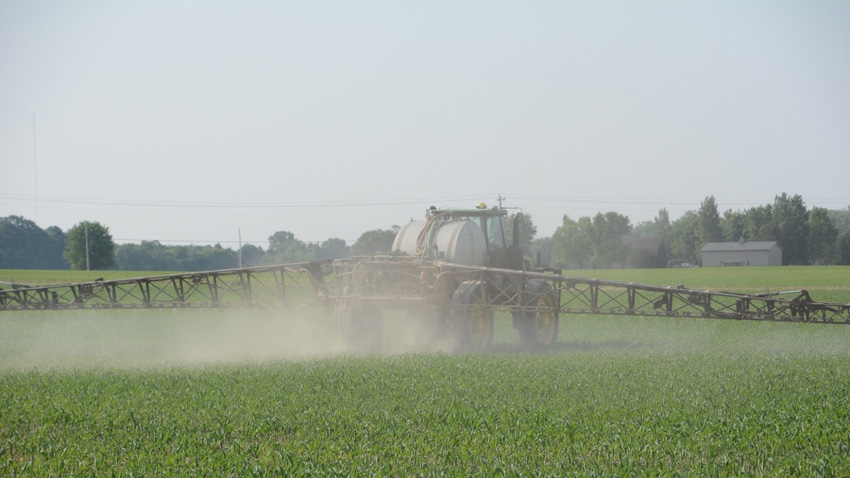July 12, 2023

A study by the University of Illinois and USDA Agricultural Research Service weed scientists in 2015 moved the industry toward mixing multiple herbicides in the same spray tank. That study showed that rotating herbicides but sticking with a one-chemical solution was increasing resistance to glyphosate in weeds like waterhemp. The 2015 study involved 105 Illinois fields and concluded that tank-mixing was 83 times less likely to lead to glyphosate resistance.
However, just eight years later, Aaron Hager, weed scientist at U of I and an author of that study, sounds an alarm, cautioning that tank-mixing only delays weed resistance.
Hager notes that waterhemp is now resistant to at least seven herbicide modes of action. Some waterhemp populations are resistant to herbicides that were never sprayed on the weeds. One theory is that weeds like waterhemp can develop metabolic resistance. This nontarget resistance allows them to produce enzymes that detoxify herbicides. Hager believes herbicide resistance is the direct result of relying too much on chemical control. He urges farmers to diversify tactics, including eliminating weed seed production.
Meanwhile, Bill Johnson, weed scientist at Purdue University, also expresses concern. Without significant change, he foresees the day in the not-so-distant future when waterhemp may be resistant to every chemical herbicide.
Precision honey production
Beekeepers don’t need help from precision agriculture, right? A company called BeeHero is turning that assumption on its head. The company reached a milestone, using sensors placed inside working hives around the globe to collect 10 million hive samples daily. The unintrusive sensors report through a low-energy system that allows for easy data collection.
Sensors collect data on hive conditions, including temperature, humidity, audio and more. Data is massed and analyzed using algorithms, then used by beekeepers to optimize hive management principles. Learn more at beehero.io.
More FieldView options
Climate FieldView from Climate LLC, the digital farming arm of Bayer, enhanced capability for two key functions. FieldView users can now create reports for all planting and application activities from any year and any crop. Once created, these reports can be exported by PDF or CSV format via email or text directly to people who need the data, such as crop insurance agents. These reports should also be useful to support farmland rental negotiations. See climate.com.
Deere and PCT Agcloud
If you grow corn, soybeans or wheat and use the HarvestLab 3000 Grain Sensing product to generate insights through Protein Pro, powered by PCT Agcloud, you can now use that data in the John Deere Operations Center. Farmers with both these technologies can share data back and forth between systems.
Customers using Protein Pro can create immediate insights by combining and yield maps, Deere spokespersons report. Visit pct.ag.
Better chemical application
The people who sell the Mixmate automated chemical mixing system by Praxidyn believe their product can help you produce more consistent, effective herbicide applications. But they stress that all spray applications work better with high-quality water.
Here are three main points: First, make sure pH is between 6.0 and 8.0 for spray water. Second, keep total water hardness below 350 parts per million for low rates of glyphosate and below 700 ppm for higher rates. Third, electrical conductivity, or EC values, less than 500 in water are safe for spraying. If above 500, conduct a hardness test to confirm that antagonizing cations are present.
Read more about:
HoneybeesYou May Also Like




